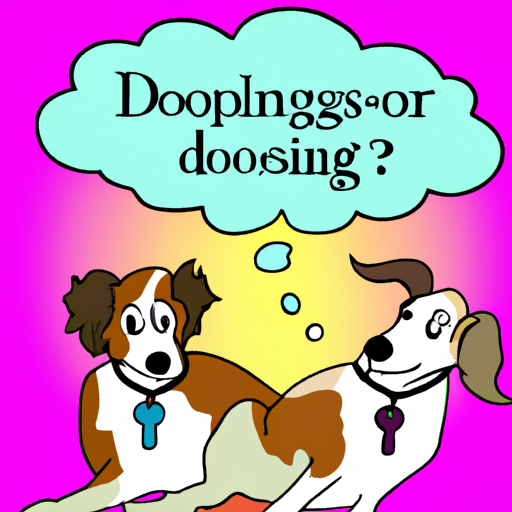If you’re a dog owner with more than one fur-baby in your home, you may have noticed some behaviors that may seem a little odd to us humans. One such behavior is when one dog licks the other dog’s private areas. As a caregiver, it’s essential to understand why this happens and if it’s a cause for concern. Let’s delve into the subject and get some insight on this canine behavior.
1. Understanding Dog Behavior
Dogs communicate and explore their world predominantly through their sense of smell and taste. When your dog licks another dog’s private parts, it’s not a perverse action, but rather a natural instinct driven by various factors.
Social Structure and Dominance
Dogs are pack animals with a hierarchical social structure. Licking, in general, is a submissive behavior that can signal respect and acknowledgment of another dog’s higher social status. It’s a way of saying, “You’re the boss.”
Health Checks
Dogs also engage in this behavior as a form of health check. They can detect changes in their companions’ health by scent and taste, including hormonal changes, infections, or diseases.
2. When Is It Normal, and When Is It a Problem?
While this behavior is generally normal, it can sometimes indicate a problem. It’s crucial to monitor the frequency and intensity of the licking.
Normal Behavior
Here’s a brief list of situations where it’s normal:
- After the other dog urinates or defecates: Dogs gather a lot of information from these actions.
- During play: It’s part of their social interaction.
- When a female is in heat: Male dogs will lick a female’s private parts to determine if she’s ready to mate.
Problematic Behavior
On the flip side, if your dog is excessively licking another dog’s private parts, it could signal a problem. This might be due to:
- Compulsive behavior: Some dogs develop compulsive behaviors due to stress, anxiety, or boredom.
- Health issues: If your dog persistently licks another dog’s private parts, it might be detecting a health problem that needs attention.
3. What Should I Do If It Becomes a Problem?
If the licking becomes obsessive or you notice other signs of distress, it’s time to intervene. Here are a few steps you can take:
- Consult your vet: If you suspect health issues, consult your vet immediately. They might conduct tests to rule out any medical conditions.
- Distract and redirect: If it’s a behavioral issue, try to distract your dog when it starts to lick and redirect its attention to something more constructive.
- Consider professional help: If distraction and redirection don’t work, it might be time to consult a professional dog trainer or animal behaviorist.
4. Preventing Problems
Prevention is always better than cure. Here are a few preventive measures you can take:
- Regular vet check-ups: Regular vet visits will ensure that any health issues are detected early.
- Proper socialization: Teach your dog appropriate social behavior by exposing it to different environments, people, and other animals.
- Mental and physical stimulation: Keep your dog mentally and physically engaged to prevent boredom and anxiety.
5. Frequently Asked Questions (FAQs)
Is it normal for dogs to lick each other’s private parts?
Yes, it’s generally normal behavior for dogs.
Should I stop my dog from licking the other dog’s private parts?
Unless it becomes excessive or obsessive, or there are other signs of distress, there’s usually no need to stop it.
When should I be worried?
If your dog is excessively licking, or if you notice other signs of distress, consult your vet.
Can this behavior indicate a health problem?
Yes, persistent licking can sometimes indicate a health problem in the dog being licked.
To conclude, understanding your dogs’ behavior is key to ensuring their wellbeing. As a caregiver, your role is to monitor their behaviors, differentiate between what’s normal and what’s not, and take appropriate action when necessary.



